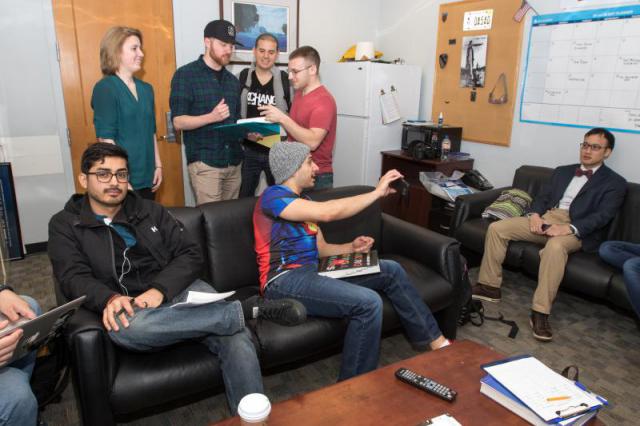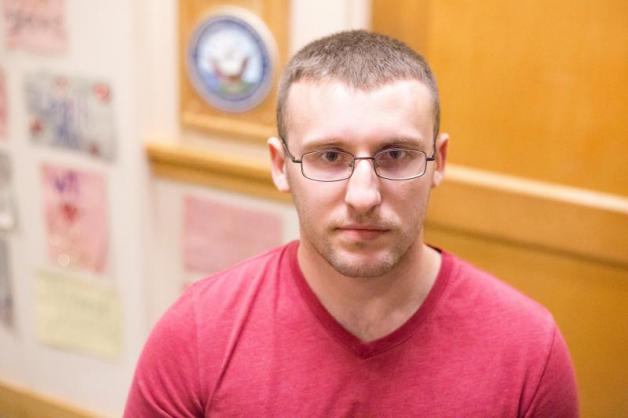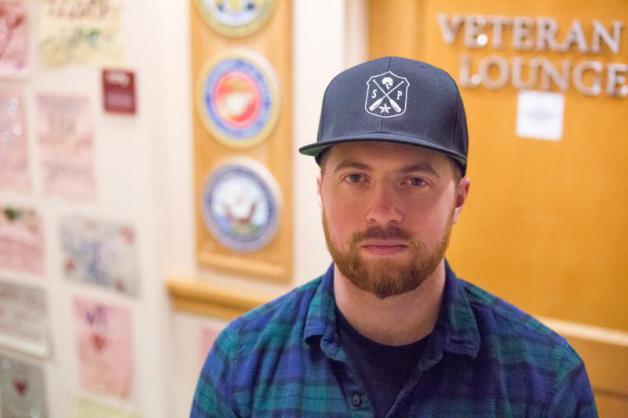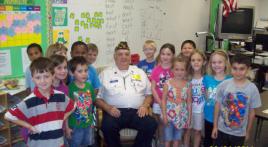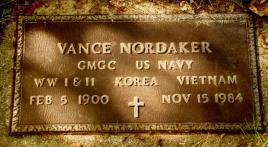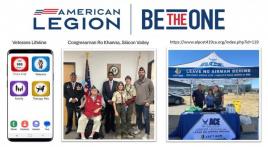By John Froonjian
The roads in Marjah in southern Afghanistan were mined with explosives in 2011. So the Marines in Tyler Straube’s Battalion 9th unit moved through adjacent fields on patrol. “A tactic the Taliban would use was to flood the fields so you were literally knee deep in mud,” Straube recalled. He was slogging through a mud field when his first firefight erupted.
“Bullets were flying. There were explosions, rockets going off. … Your training is replaying in your head,” he said. “You’re firing back.
“Your adrenaline is flowing. It’s real interesting. But the day one of your men doesn’t come back, it changes everything,” Straube said. “You can’t grieve while it’s happening. That’s how you lose more. Once you’re back to safety, you deal with it.”
Straube, 25, a corporal, is now a criminal justice senior at Stockton University in southern New Jersey. Transitioning from military service to academics is daunting even without combat experience. “You’re told for four years what to do, and you come into a vastly different world at college,” said Thomas O’Donnell, Assistant Dean for Veteran Affairs. Jason Babin, Assistant Director of Student Rights and Responsibilities, said a majority of veterans tell researchers that attending college is the hardest thing they have ever done.
Stockton University is one of the best in the nation at easing that transition.
Beginning in 2008, Stockton developed model services to help veterans navigate the system and to succeed academically, including:
• a veterans orientation program;
• a veterans counselor;
• help with coordinating GI Bill and other benefits;
• faculty mentoring.
National recognition followed. The Military Times in November named Stockton one of the 20 best colleges for veterans. The Online College Plan rated the university No. 6 nationally for veterans. The Office of Institutional Research reports nearly 300 veterans enrolled at Stockton. O’Donnell believes the number is higher because many do not identify as veterans on forms.
Babin, a six-year Army engineer, said collaboration is key to success. His own experiences at three different colleges convinced him of the need for assistance. “There was very little support,” he said. Student Rights and Responsibilities is a one-stop shop for resources, case management, crisis intervention and guidance.
At Stockton, support for veterans comes from the community, too.
American Legion Post 430 in Galloway, N.J., where Stockton is located, donated $25,000 in 2015 to establish an endowment for student veterans and their families in the university’s Master of Social Work program. That added to the $100,000 in scholarships for local veterans the post donated in 2011.
Moving from a military mindset to feeling comfortable with civilians is essential, Babin said.
Student Veteran Organization (SVO) President Paul Garraty, a criminal justice senior, agreed that college life was an adjustment. He, too, saw combat action in Marjah.
“I hear on the radio the truck in front of us is getting shot at, and then the Taliban start shooting at the truck I was in. I think, ‘Oh, my god, it’s happening.’ At first you’re scared, but I was in an armored truck. Then it’s exciting. Then it’s anxiety because you don’t want to screw up and get your friends killed,” Garraty said.
A Galloway. resident, he began attending Stockton after his June 2013 discharge as a lance corporal. He grappled with feelings of resentment.
“I saw some students as spoiled kids. Why do they get to be around, and guys I went into battle with and ended up dying less than a year after high school don’t? I would see people protesting, talking about being oppressed. When I was in Afghanistan, I saw actual child sex slaves. I was angry.
“I probably could have used somebody to talk to,” Garraty admits.
Straube also went through a time of adjustment. “When I got out of the Marine Corps, I wasn’t the same person I used to be. I was real quiet and stayed within myself. I didn’t like people, civilian-wise. But here, there were a lot of people who had been through the same things. I could talk to them, and that helped a lot.”
Two particular features of Stockton help veterans cope and grow. One is a veterans’ lounge. The space in F-wing provides a haven where veterans can share experiences. Once grounded, they can expand their circles.
“It’s an outlet,” Straube said.
“That lounge is very important. It’s where I made my first friends,” Garraty said. “If it weren’t for that lounge, I probably would have dropped out.”
Garraty and Straube have both flourished at Stockton. Both hold SVO leadership roles. They raise money for veterans’ causes. Their SVO chapter is nominated by the national organization as one of the best in the nation. Both students urge veterans to take advantage of another Stockton service: counseling dedicated to veterans and their families, a rarity among colleges.
Karen Matsinger, a Stockton mental health counselor, helps students with post-traumatic stress disorder, depression, anxiety and other problems. She explains that combat veterans may sit in the backs of classrooms because they are hyper-vigilant and frequently scan for security threats. Many may hide that they are recovering from physical injuries.
“We have students who are in Afghanistan on a Monday and the next Monday are literally enrolled in class,” Matsinger said.
She said some must work through “moral injuries,” having had to act against their moral or cultural mores. For example, they may have had to forego helping injured civilians because of uncertainty over the situation.
Matsinger, a Stockton 2005 psychology graduate, carries a caseload of 35-50 students a semester. Like Babin, Matsinger stresses the importance of building relationships with non-veterans. One positive: civilian students have formed an SVO auxiliary to support the veteran community. Another sign of growth is that SVO members hold panel discussions in Stockton and high school classrooms to educate civilian students.
Straube has participated in more than a dozen. He said veterans are “brutally honest” in talking about their experiences. “It’s mutually beneficial. It helps people understand what we’ve been through. And it helps us open up and make a link with civilians.
“I was attracted to Stockton because of the veterans’ programs, and now I’m part of them,” Straube said, adding: “I swear by Stockton. It’s great for veterans.”
